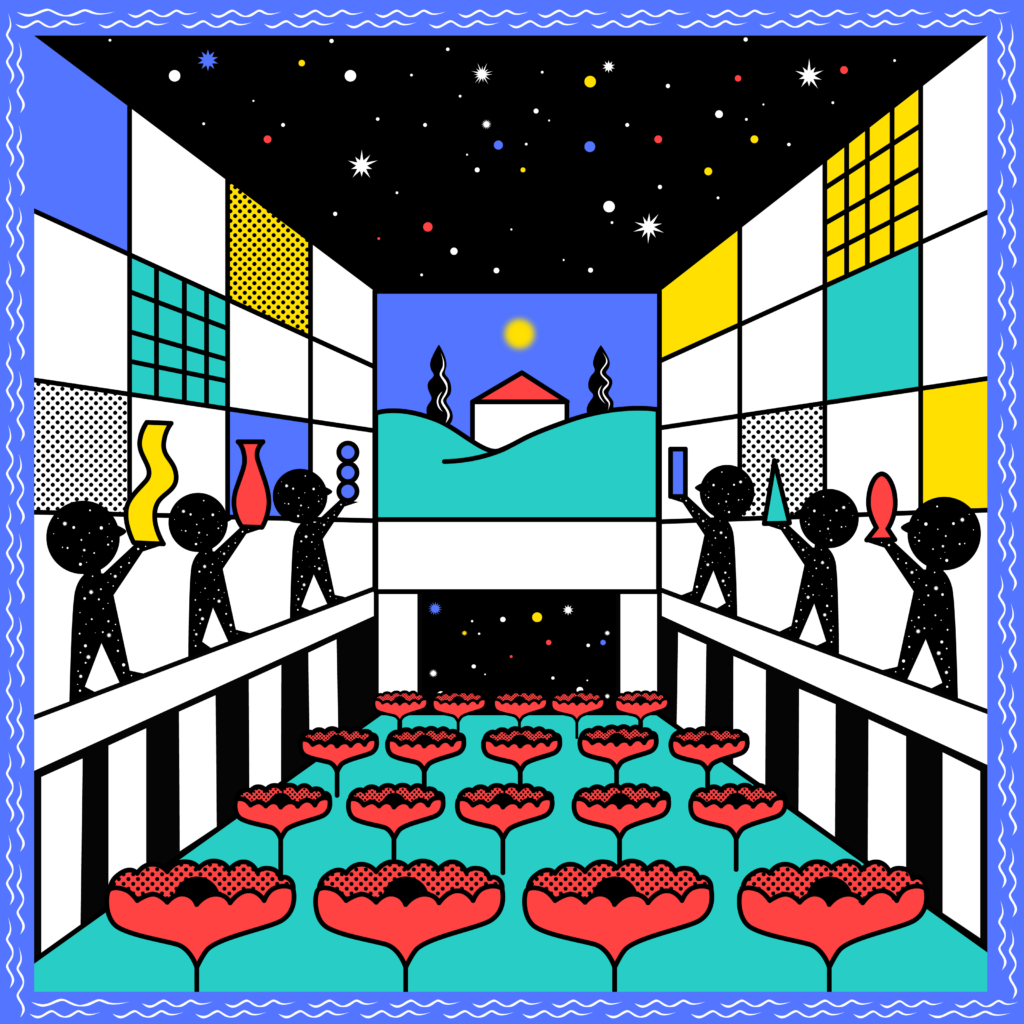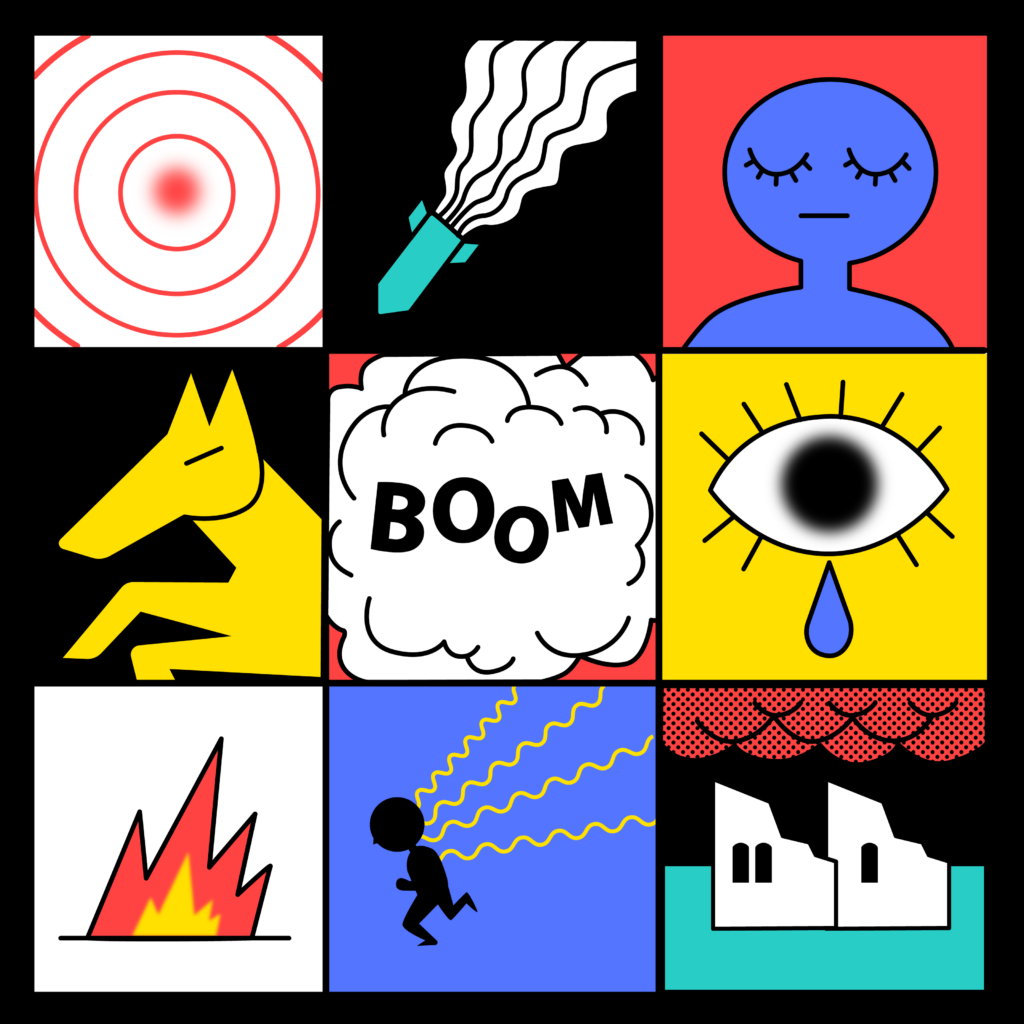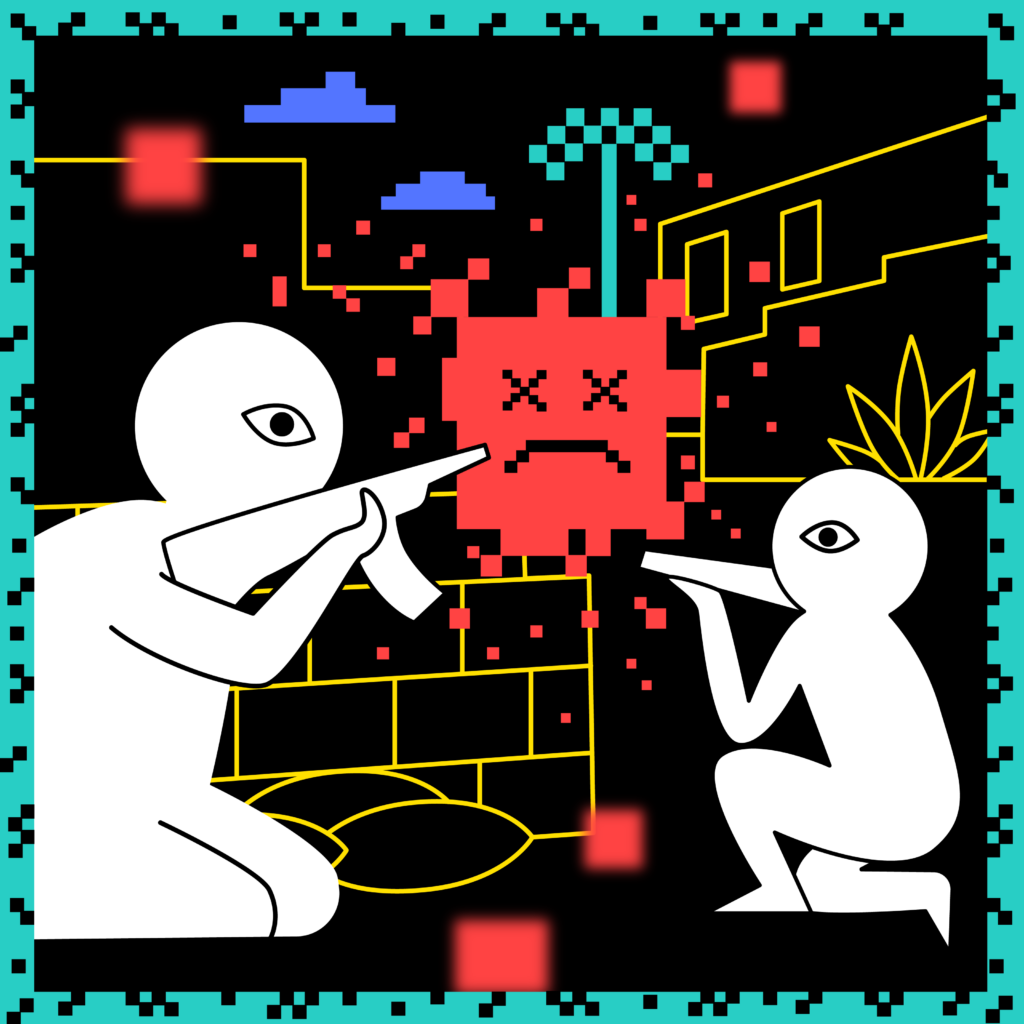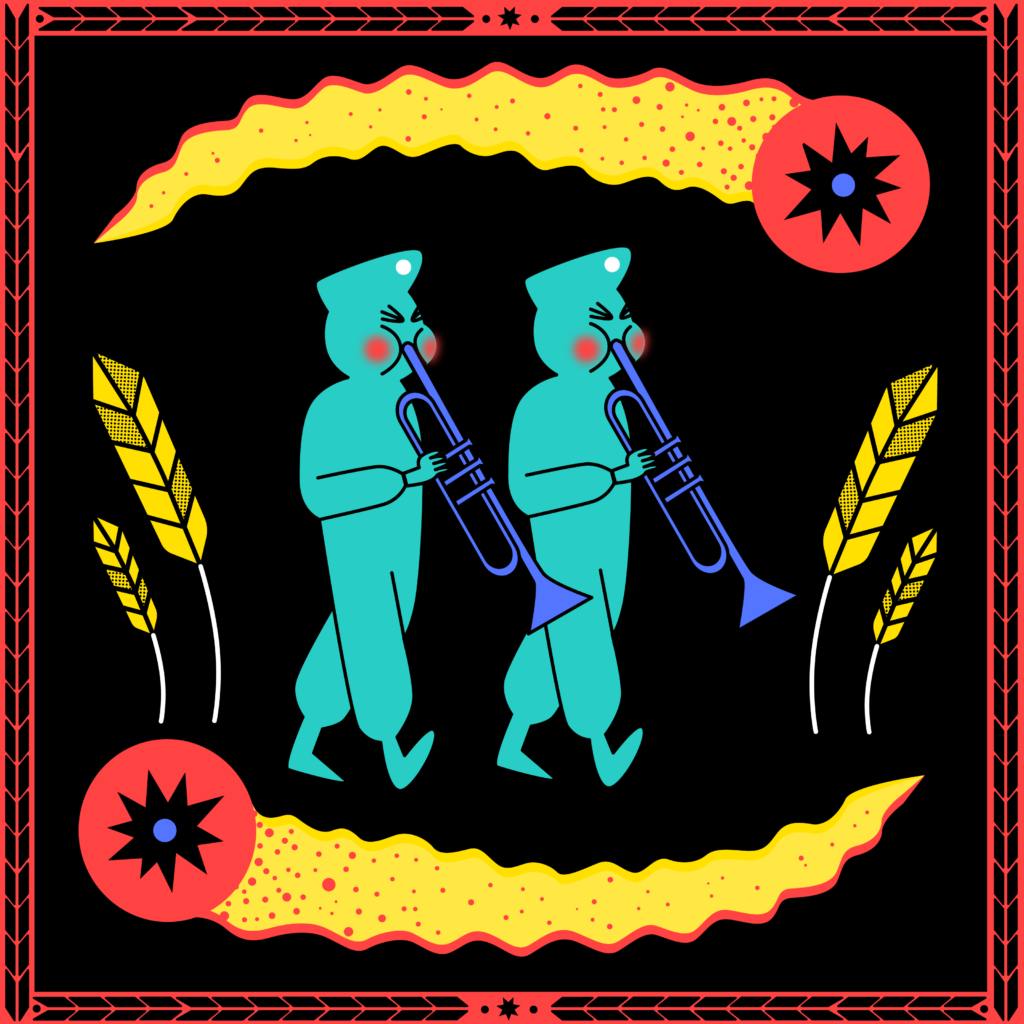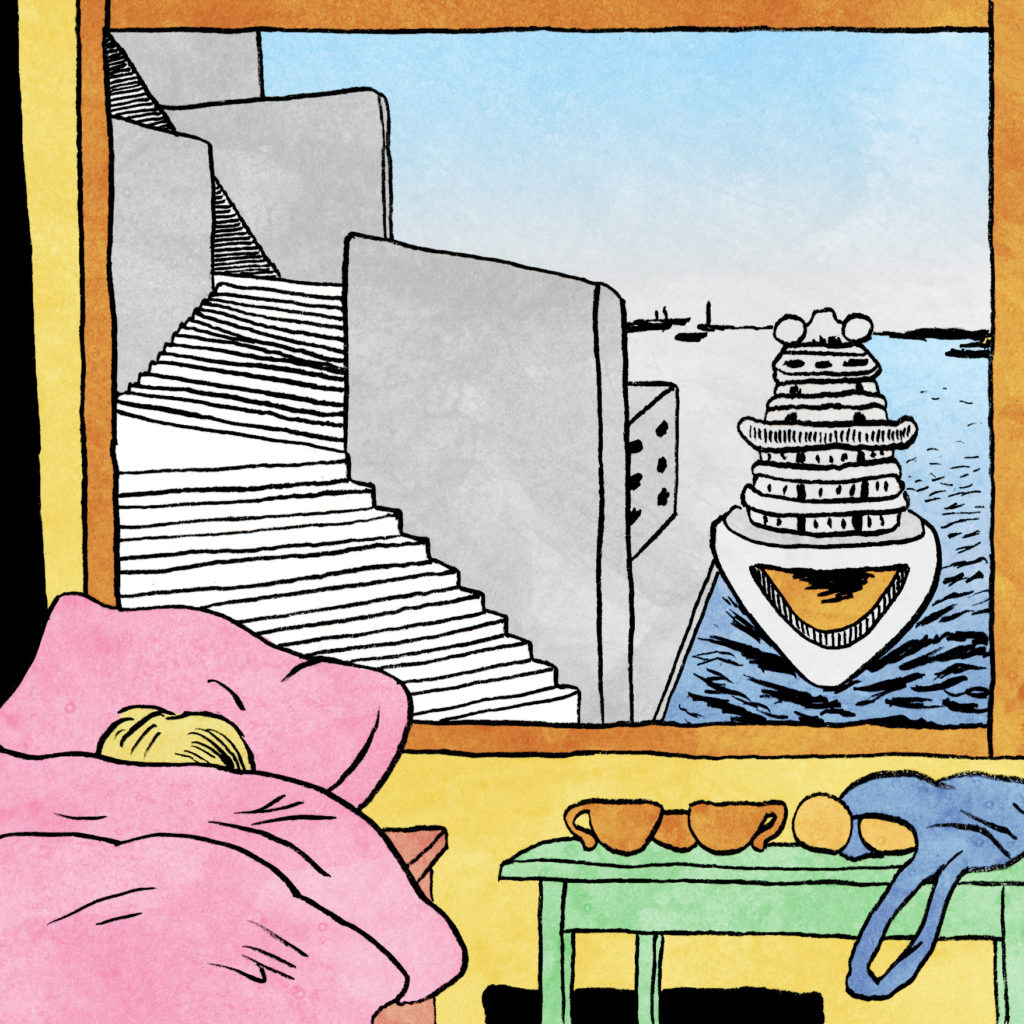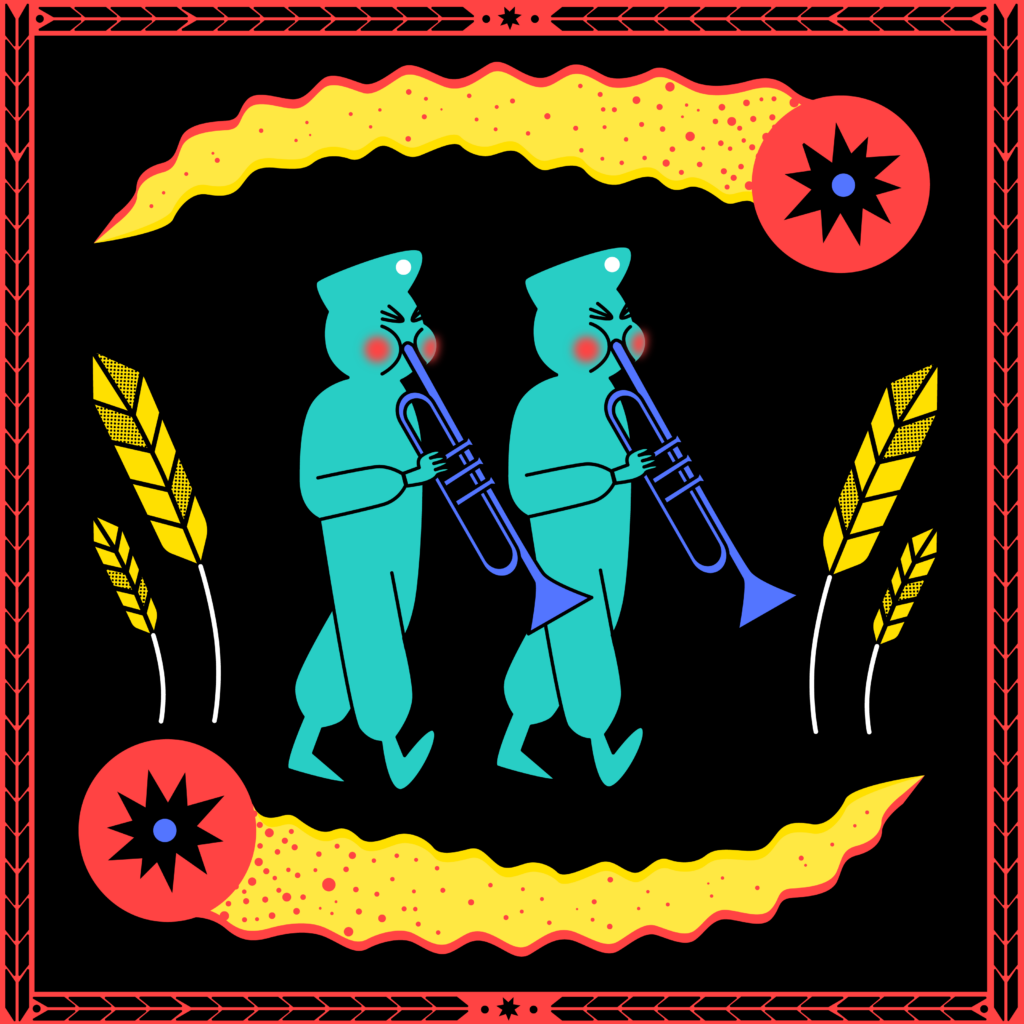
Art by Or Livneh
When I was working as a Radio DJ, I had a weekly show on Israel’s most popular music station (GLGLZ). Most of the time I used to play new releases and music that I found exciting and wanted to share with others. But sometimes, that show became a means of reacting to certain situations through music – whether they were personal, local or global.
In 2017 I prepared a show named “Songs about war that will bring peace”. I managed to collect quite a few songs about war from different aspects, different eras, different cultures; painful songs, funny songs; literal texts and vague ones; upbeat tunes and mellow ones.
To be honest, I have no recollection of what happened back then that made me choose songs related to that subject. What I do know, is that 6 years ago the term “war” was something I knew from stories of older family members, read about in history books and articles, watched in documentaries or news reports from far away places. Even the rocket attacks on Tel Aviv carried out by Hamas, which I experienced since 2012, were never a “war” – they were frightening and unnerving, but it didn’t take long for us to recover and go on with our lives until the next attack, trying to create some kind of sane reality in this impossible situation.
That changed on October 7th.
The trauma of that day was so immense, that I couldn’t bring myself to even listen to music for about 3 weeks. But even now, about 70 days later, when I already regained the ability to listen and play music to others, it’s not the same as before. The term “war” ceased to be a tale from far away places. It is now our reality – a devastating, heartbreaking, petrifying reality. The term “war” stepped out of the page into the sensual world.
“Songs about war that will bring peace.”
I went back to the tracklist I put together 6 years ago. At this point in time, some of the songs I included there hit too close to home, but some are very relevant still. For this article, I replaced some of the songs I found inappropriate or insensitive with others that I perceive in a new light all of a sudden. I also added a few songs that to me reflect the complexity of life in this region.
In this playlist you will find songs in Hebrew and in English, from the 1970s up to recent years, groovy and melodic, cynical and hopeful. The order of the songs also matters, I recommend listening without shuffling.
I think the reason I was looking for songs about war, about violence, about pain and sorrow for that radio show I did, was to find an original angle rather than playing songs about peace. Maybe in the mind of my 26-year-old self it was cooler to do that, I don’t know. But now I understand the importance of this angle, as a way to reflect and react to the current situation through music: if we want to achieve peace, we must remember the reality we’re living in right now. We must remember what war feels like, in order for us to end this one and never let another one happen again.
—————-
SAULT – The Beginning & the End
The wondrous thing about music is the ability to see yourself in lyrics that were written by a total stranger, from a completely different background to your own. To feel as if someone gave your personal experience a voice, even if they didn’t mean it. That’s how I feel these days about some of the music of the British group/collective Sault, directed by the songwriter and producer Inflo. One of the main themes in the music of Sault is the Black identity – both on the textual and musical aspects. The story of the Black community and its fight for justice – around the world and in the UK in particular – is being expressed in the albums by Sault in such a rich manner, in the clearest lyrics, in a variety of rhythms that are rooted in the Black history and identity.
“The Beginning & the End”, taken from the 2020 album Untitled (Rise), is clearly inspired by the protest songs of Fela Kuti. It’s a spoken word piece built upon an Afrobeat rhythm, talking about rising from a dire situation, trying to find a trace of hope within the reality of war. But a few lines stand out in the most spine-chilling way when I hear them these days as an Israeli: “They say for unto us, a child is born, a son is given / But our child is missing, plastered onto every lamppost / And stop sign across America, no less, the world / In red, bold typeface, it reads ‘Kidnapped’.”
PJ Harvey – The Words That Maketh Murder
I think the album Let England Shake from 2011 was the first time I really understood the brilliance of PJ Harvey as a songwriter. It’s an ambivalent love letter to her homeland, an important artistic effort in the depiction of wars and conflicts in modern history, and a direct spotlight on the human experience in extreme situations. “The Words That Maketh Murder” could refer to any war – it’s written from the perspective of a soldier traumatized by sights and smells of a war they fought in. PJ Harvey not only gives the listener an idea of what war looks and feels like – she also raises a question about the effectiveness of diplomacy in such circumstances (“What if I take my problem to the United Nations?”).
Mazi Cohen – Shem BaEven (Carved in stone) [Army Dreamers cover]
Probably one of the best Hebrew translations of a song in a foreign language. This one appeared on the debut album of Israeli singer Mazi Cohen from 1988. The songwriter Roni Eran took “Army Dreamers” by Kate Bush (from her 1980 album Never For Ever), and succeeded in translating the grief of a mother who buries her soldier son to a language and culture that, too, experienced numerous wars and losses. The arrangement of this version, using only vocals and an electric guitar, is haunting and vulnerable at the same time.
Terry Callier – Ho Tsing Mee (A Song of the Sun)
The Vietnam War is one of the most painful moments in modern history. Many protest songs were written about it and against it, by many musicians who tried to call for peace through their art. One of the most beautiful songs I know from that era was written by Terry Callier, a soul singer from Chicago who collaborated with producer, arranger and fellow Chicagoan Charles Stepeny in the early 1970s. The album What Color Is Love was released on Cadet Records in 1972 – till this day, it’s considered by some to be one of the greatest soul/psychedelic soul records ever made, and one of Terry Callier’s finest pieces of work. The song “Ho Tsing Mee (A Song of the Sun)” depicts the hopelessness of war, the frustration with the unwillingness of people to listen, and the effort not to give up to despair. But even the saddest descriptions are written in such a poetic way, so compassionate and gentle. This song is like seeing a beautiful flower in the middle of a battlefield.

